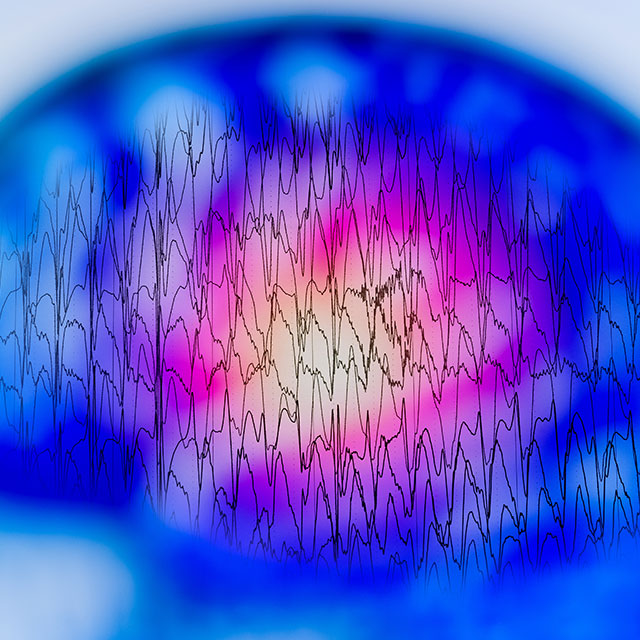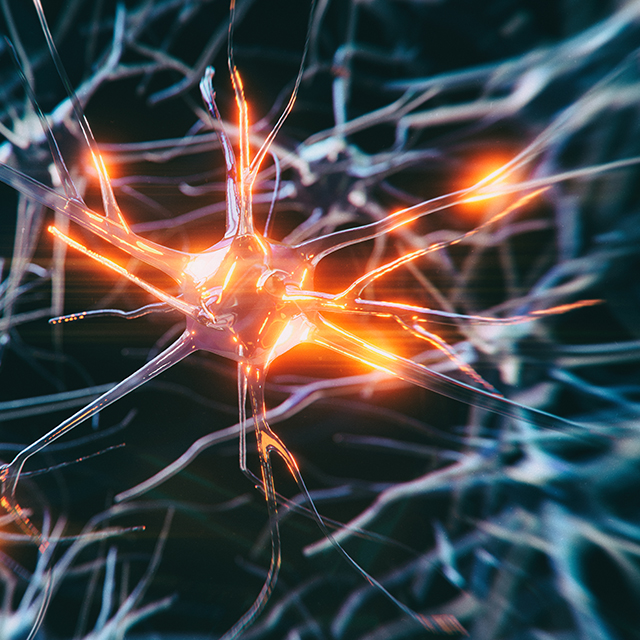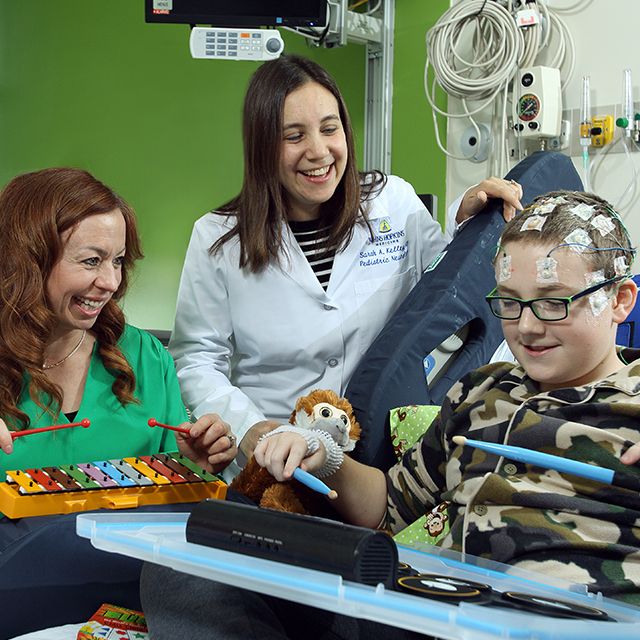A common misconception in pediatric epilepsy is that surgery should be a last resort, says Johns Hopkins pediatric epileptologist Ahmad Marashly. On the contrary, he says, if patients fall into the 30% of those who fail medical management, surgery should be explored early as an appropriate and potentially curative option.
“Surgery should be thought of immediately when children meet the definition of refractory, after they fail two medications. The earlier we can limit or stop seizures, the better the brain develops,” says Marashly. “As children are gaining IQ points, learning, going to school and forming personalities, it’s particularly important to effectively treat their seizures as soon as possible.”
To help these young patients better access surgical options, Johns Hopkins has expanded its pediatric epilepsy program, opening a pediatric epilepsy monitoring unit in February 2020 and bringing Marashly onto the team in September 2021.
This expansion has been fueled by recent advances in pediatric epilepsy care, explains pediatric neurosurgeon Shenandoah “Dody” Robinson. Neurologists now use magnetic resonance imaging with higher resolution to identify anatomical abnormalities contributing to seizures that may have been missed in the past. In addition, a relatively new technique in the U.S. called stereoelectroencephalography can help experts identify epilepsy foci via electrodes inserted through tiny drill holes in the skull, obviating the need for a riskier open craniotomy for monitoring. For some patients, the program offers responsive neurostimulation — a technology that counters seizures with electrical impulses delivered through implanted devices that Johns Hopkins helped develop, test and implement in adults over the past several years.
“Together,” Robinson says, “these advances have expanded the pool of pediatric candidates for epilepsy surgeries, procedures that Johns Hopkins is uniquely well suited to provide.”
Not only does Johns Hopkins offer the latest surgical procedures, she adds, but its team approach is one that’s available at few centers across the country — cohesively combining the expertise of epileptologists, neurosurgeons, neuroradiologists, neuropsychologists, social workers, nurses and others. The epilepsy program is bolstered by Johns Hopkins’ collaboration with nearby Kennedy Krieger Institute, a center dedicated to treating pediatric developmental disabilities and disorders of the brain, spinal cord and musculoskeletal system. This partnership offers a close link to experts in developmental and genetic disorders in which epilepsy is a common feature.
“Because we work together with lots of kids who have epilepsy along with other coexisting issues, such as intellectual disabilities and autism,” Robinson says, “our team is comfortable with that type of multidimensional care.”
Being able to significantly curb or even eliminate seizures in young patients is a highlight for their careers, Robinson and Marashly say.
“Many kids with epilepsy are well aware of what they’re missing out on because of their disease,” Robinson says. “Being able to perform these surgeries can give children their lives back.”


